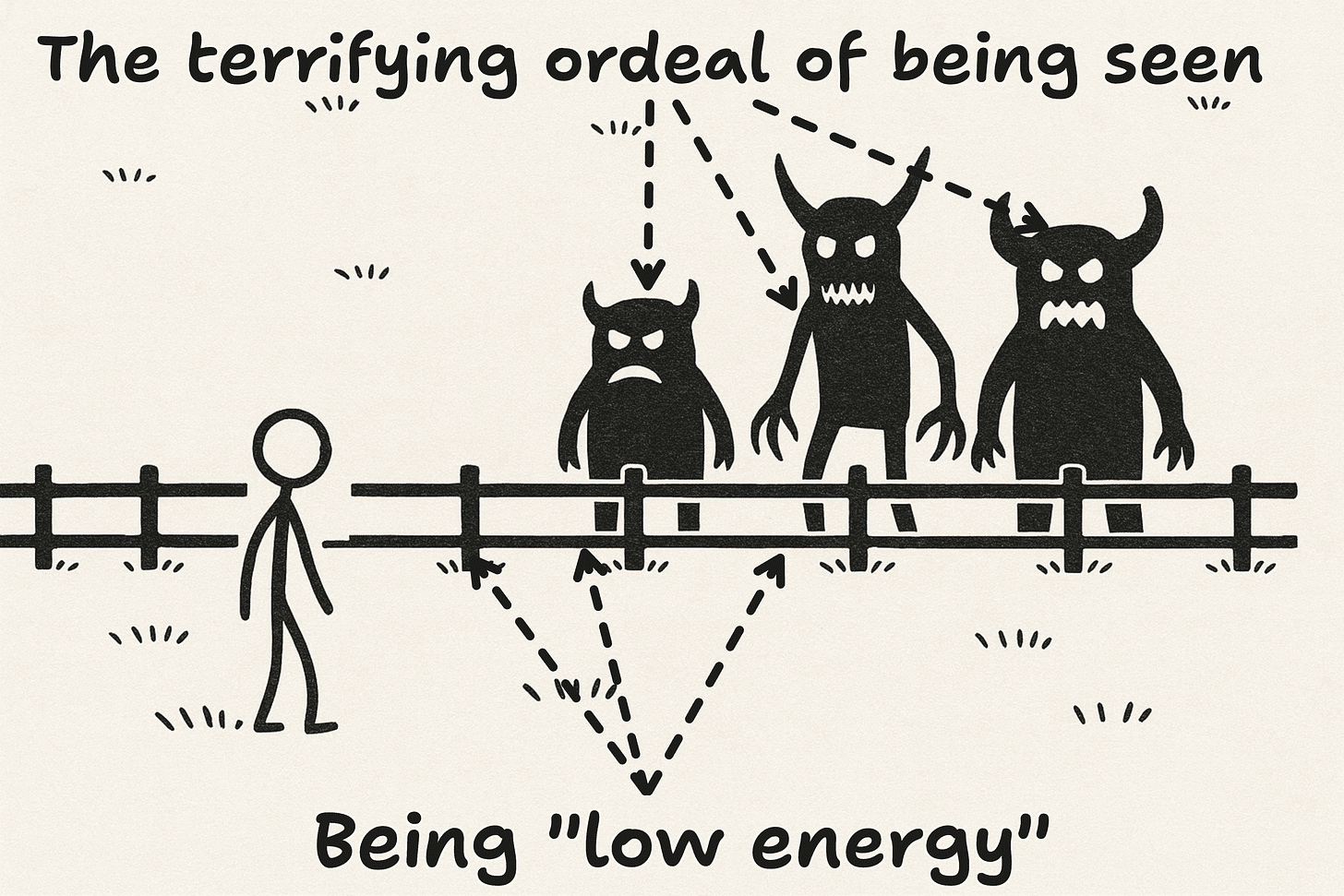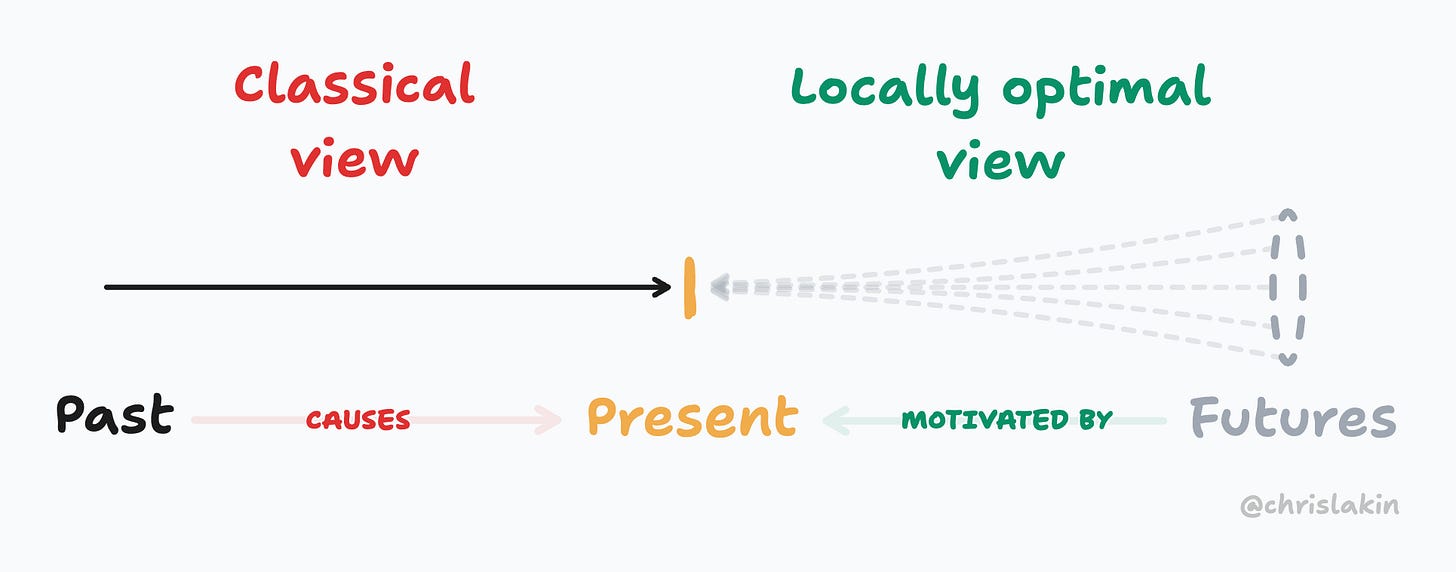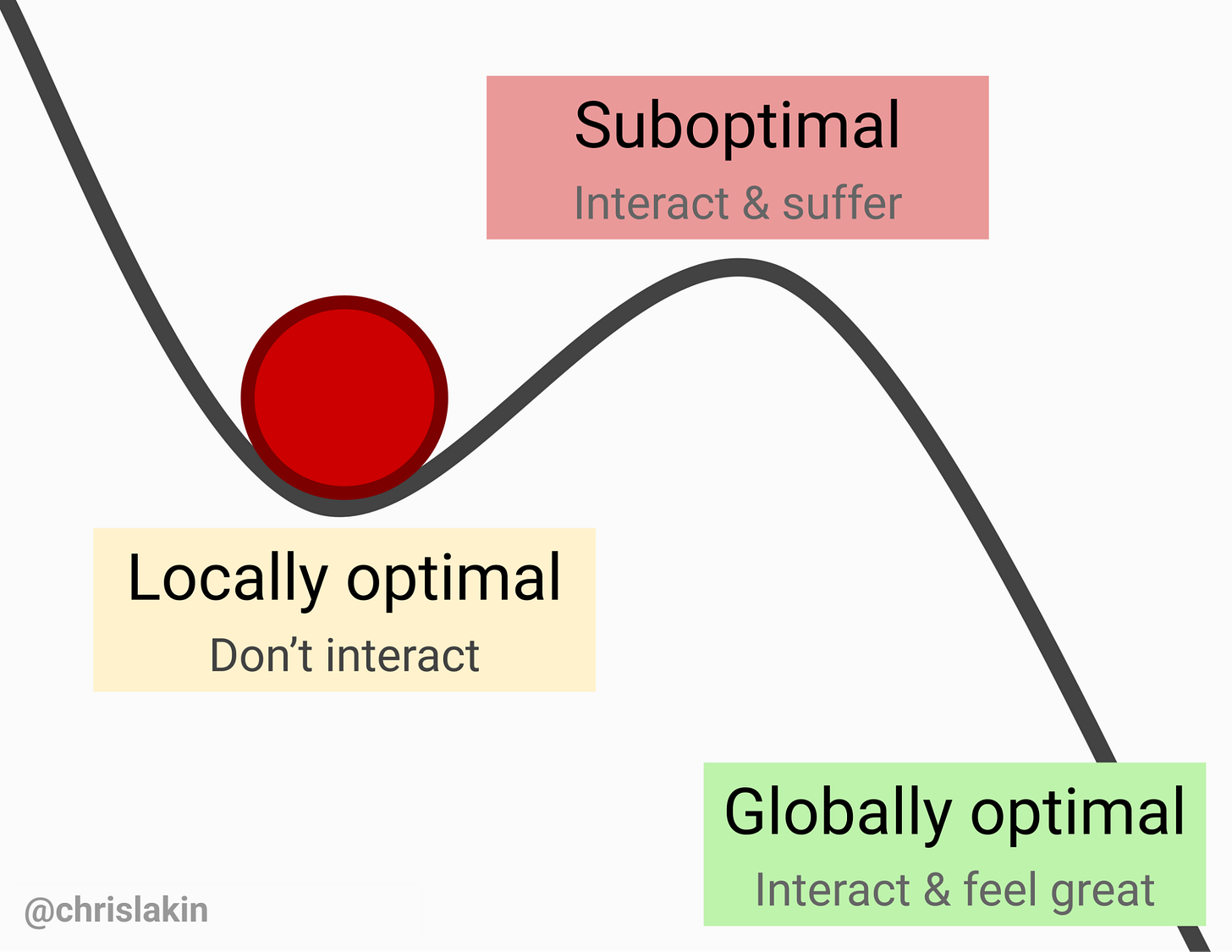Why we create our suffering
Locally optimal strategies
2022. I couldn’t figure out why I was withdrawn from everything. “Why are my emotions so irrational?”
Social interactions weren’t going as I wanted. Crushes ghosted me. Setting boundaries pushed people away. Interacting with people felt unsafe.
I thought my problem was the withdrawal. But withdrawal was actually a solution to another problem.
If interaction was unsafe, then one way to stay safe was to… not interact.
I unlearned what made interaction feel unsafe. I haven’t needed to be withdrawn since.
After noticing this pattern — the problem wasn’t the problem, it was a solution — I started seeing it everywhere in myself and others.
A different way of understanding suffering
Any persistent issue can be understood from two different points of view:
In the Classical view: Past experiences “caused” the present state. “My withdrawal is an unfortunate consequence of previous trauma or bad experiences, which I have no control over.”
And the Locally Optimal view: My state is incentivized by what my nervous system is currently acting to avoid. Withdrawal wasn’t random, but rather strategic.
In the classical view, you look backwards: the past caused the present issue, and the past can’t be changed… so rest in pieces I guess.
In the locally optimal view, you look forward: your present state is shaped by the futures you want to avoid and the futures you want to achieve.1
The locally optimal view is a hopeful view: your suffering isn’t random, but functional.
My withdrawal wasn’t globally optimal. It sucked. Even so, it was the best strategy known at the time.
So, it seems my emotions weren’t “so irrational” after all…
Locally Optimal
About | Twitter
V2.1. 2024 Nov 23 – 2026 Jan 28.
It’s like the efficient market hypothesis but for emotional issues: “If there were zero downsides to resolving this issue, then why hasn’t it resolved itself already?”






